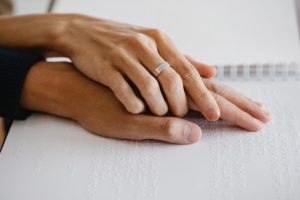 All too often, for many people in couples counseling, it isn’t uncommon to think that therapy isn’t gaining any ground.
All too often, for many people in couples counseling, it isn’t uncommon to think that therapy isn’t gaining any ground.
However, what if you stepped back for a moment and asked how you can tell if couples counseling is actually working?
It may be a departure from a way of thinking about your relationship that leans toward a focus on the negative rather than the positive. After all, it’s easier to point out what isn’t working, instead of what is.
But a willingness to change that outlook could result in a beneficial shift in perspective and progress! To help you along, consider these three key ways to tell that your couples counseling sessions are paying off.
1. You’re Not Arguing as Much
Let’s be fair. Participating in couples counseling doesn’t mean that arguments between partners suddenly disappear. Every couple has an occasional argument. However, if you and your partner have been participating in couples counseling, then you might notice that you fight less frequently.
And, when you do have a disagreement, the argument is not as intense. Both of you are more likely to talk about a difference, rather than have a full-blown argument. That means the process is working! You’re both keeping each other’s perspectives in mind when you have a dispute. And, you’re less likely to be defensive and reactive when you say what you have to say.
2. More Listening Occurs on Both Sides
Another way to tell that couples counseling is working is that you are listening more to one another. You’re likely doing this by demonstrating mutual attentiveness. For example, you may:
- make eye contact more often.
- sit with the disagreement rather than lashing back immediately.
- summarize and reflecting back what your partner has said.
- follow through with requests from your partner.
You may find it interesting how often you once believed you were listening to your partner. Yet, in reality, you were simply waiting for an opportunity to defend, explain, or justify your own point of view. Therapy is working if you are now absorbing and thoughtfully responding to more of what your partner shares.
3. Showing Your Appreciation is Intentional and Frequent
By the time many couples come to therapy, more than just a breakdown in communication has occurred. Additionally, there may have been few expressions of appreciation for a very long time. Why? Because, as things evolve without intervention, resentments build up. Often, it becomes easier to see your partner as an enemy, rather than your best friend.
Therapy can foster time and space to see each other clearly and reacquaint you with each other’s better qualities. Soon, you’re both showing your appreciation to each other more often. For instance, you may feel more inclined to:
- give hugs.
- cook a meal for your partner.
- volunteer to help with a task.
- Say “I love you and appreciate you.”
You may feel more affection and security in your relationship so that small acts of appreciation unfold naturally. More intimate moments develop as sharing and trust develop in sessions and out. Over time, they go a long way in restoring trust, confidence, and love in your struggling relationship.
When You Haven’t Seen Change Yet
But what if you’ve been in therapy for a while now, but haven’t seen any noticeable changes? There could be a few factors at work. These include:
- expecting all the change to occur with your partner.
- an inability to recognize change because you are too focused on being “right.”
- being rigidly attached to a predetermined outcome instead of open to the process.
- an unwillingness to fully participate in therapy.
Ultimately, for couples therapy to work, you both need to be engaged in the process. If you’re willing to do the work and are committed to the relationship, you should be able to see some key changes. Don’t wait. If you and your partner want to improve your relationship, ask for help. I’m here to help. Please reach out today to talk about how couples counseling will help your relationship heal.